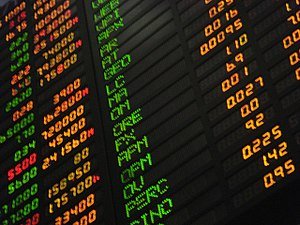What's this all about?

A differently structured route to the stock exchange has gained in importance since 2020. The term for this is SPAC ("Special Purpose Acquisition Company"). A SPAC is a stock corporation that approaches investors not to offer them an existing business model as a first step.
The capital that comes in during the IPO is only then invested in one or more promising companies. A SPAC is thus at the beginning a mandate to select companies for the investors' capital.
Even if this sounds paradoxical for a moment, this situation creates advantages for the parties involved. Investors are already given the opportunity to invest in IPOs, even if none are currently pending. At the time of an IPO, a company's shares are often favorably priced to fuel interest.
Thus, buying shares in a SPAC provides the opportunity to be part of an IPO in the future without having to find a suitable candidate yourself. From the point of view of the companies working with a SPAC, this is a way of getting onto the stock exchange more cost-effectively and more quickly.
The greatest added value lies in the SPAC team itself. Right from the start, a SPAC has specialists on board for all topics related to the capital market. But there are also industry experts who can specifically approach companies that have not yet considered a regular IPO, even though their business model might justify it.
Subsequently, the SPAC team also advises the candidate on which measures would be helpful in order to continue to be successful. This may well include tips on business strategy.
Even though this concept seems to be more suitable for institutional investors, SPACs are also a topic for small investors.
I've personally been investing into SPAC's since autumn 2020 with quite some success - average gains of 55%.
The lifecycle of SPAC
A SPAC is founded as a stock corporation and undertakes an initial public offering. Interested investors buy shares, and the capital from these shares goes into an escrow account. From this point on, the SPAC team is tasked with finding one or more companies where value can be created through an IPO, and which will benefit from working with the SPAC's experienced experts.
Once a target is identified, all shareholders vote on whether it is a suitable choice or reject it. If approved, the acquired company and the SPAC merge, at which point the SPAC completes its mission and ends.
The period to find the acquisition candidate is typically 2 years, and may also expire unsuccessfully. In this case, the SPAC ends and the money paid in is returned.
The share price of SPACs that have not yet found a takeover target nevertheless has a fluctuation range similar to the general stock market. Or even above it, because this topic always particularly captures the imagination of investors.
SPACs for specialists
SPACs that are already traded on a stock exchange can be distinguished according to whether they are looking for a candidate ("without deals"), or have already found one ("deal announced"), and whether they are multiple targets ("diversified").
There are currently over 500 SPACs worldwide, and about 25% have already named a takeover candidate. The stock prices of SPACs have had an extremely successful 2020. After an equally successful start, the segment has been going through a severe price slump since the beginning of March 2021.
In connection with SPACs, one often thinks of the "private equity" sector. The takeover candidates of SPACs are initially "private", to be later taken public by merging with the SPAC, and go "public". Private equity, for its part, invests in non-listed companies, using a fund.
One aspect here is also that the private equity team should add value to the company. Occasionally, the cooperation of companies with private equity funds results in an IPO. In a way, SPACs are a transitional stage from the "private" and the "public" world of the capital market.
Are they profitable for Investors?
According to spactrack.net the average Yield of SPACs in the last year was 36.8%.
What's also should be noted is that before the merger happens, a SPAC has some kind of a "bottom" as the share price will not fall below the amount of capital that was raised divided by the amount of shares. The reason for this is that when the merger vote happens, investors can decide whether or not they accept the deal or want to cash out their shares.
Conclusion
The opportunity to participate in the IPO of interesting companies, e.g., in the technology or healthcare sectors, that might not otherwise go public, or in which investors might not be involved from the beginning, has sparked interest in SPACs. SPACs are public companies that offer their shares in exchange for a mandate to acquire a stake in one or more companies that are now still entrepreneur-led, and thus go public.
If you want to learn more about SPACs, especially the price "bottom", or warrants on SPACs (which can lead to higher returns with a higher risk) - just let me know here and I will do another post!
If people are interested, I can also do some posts about SPACs that look promising at the moment.
Posted Using LeoFinance Beta
Of course do it i need to know.
Posted Using LeoFinance Beta
Congratulations @mrix! You have completed the following achievement on the Hive blockchain and have been rewarded with new badge(s) :
Your next target is to reach 400 replies.
You can view your badges on your board and compare yourself to others in the Ranking
If you no longer want to receive notifications, reply to this comment with the word
STOP